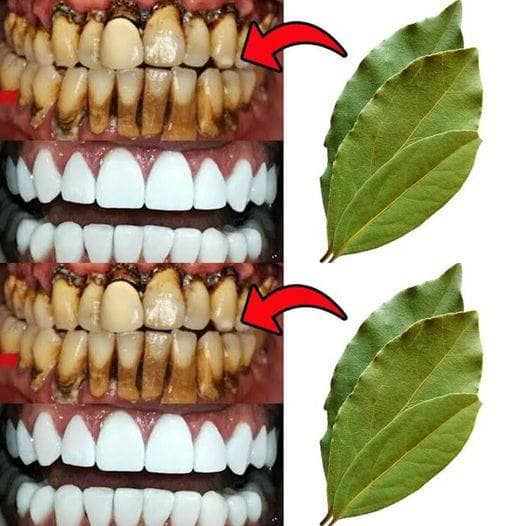ADVERTISEMENT
### **1. Brushing Isn’t Enough — You Need to Brush Correctly**
While most people brush their teeth regularly, many overlook the correct technique to ensure they’re truly cleaning their teeth effectively. One of the secrets that your dentist might want you to know is that **how** you brush is just as important as **how often** you brush.
– **Use the right toothbrush**: A toothbrush with soft bristles is gentle on your gums and teeth, preventing damage to the enamel and gum recession. Electric toothbrushes can be especially effective, as they help ensure proper brushing time and technique.
– **Proper technique**: Dentists recommend using small, circular motions when brushing, rather than harsh back-and-forth scrubbing. Brush for at least **two minutes** and make sure to cover all areas, including the front, back, and chewing surfaces of your teeth.
– **Angling the toothbrush**: Angle your toothbrush at a **45-degree angle** toward the gum line to effectively remove plaque and food particles. Don’t forget to brush your tongue as well, as it harbors bacteria that can contribute to bad breath and oral health issues.
—
### **2. Flossing is Non-Negotiable**
One of the biggest dental health secrets your dentist wishes you knew is just how important **flossing** is for your oral hygiene. Most people brush their teeth regularly, but a staggering number of individuals neglect flossing. Flossing is the most effective way to remove plaque and food particles from between your teeth and beneath the gum line — areas that a toothbrush simply can’t reach.
– **Why flossing matters**: Plaque that builds up between teeth can lead to cavities and gum disease. Gum disease (gingivitis and periodontitis) can cause serious complications, including tooth loss. Flossing removes this plaque and prevents tartar buildup, which can only be removed by a dentist.
– **How to floss properly**: Gently slide the floss between your teeth using a zigzag motion. Avoid snapping or forcing the floss, as this can damage your gums. Once the floss reaches the gum line, curve it into a C-shape around one tooth and slide it up and down to remove debris. Repeat this for each tooth.
Flossing once a day, preferably before bed, is the most effective way to maintain a healthy smile. It only takes a few minutes and makes a significant difference in preventing dental issues.
—
### **3. Mouthwash: Not Just for Fresh Breath**
While mouthwash is often marketed as a solution for bad breath, it serves many other purposes that are important for maintaining dental health. Dentists recommend using a mouthwash that contains **fluoride** and **antibacterial** agents to further protect your teeth.
– **Benefits of mouthwash**: Mouthwash can help reduce plaque buildup, fight bad breath, and reach areas that brushing and flossing might have missed. Some mouthwashes also contain fluoride, which helps prevent tooth decay by strengthening enamel.
– **When to use mouthwash**: Dentists suggest using mouthwash after brushing and flossing, as it can help wash away any lingering food particles and bacteria. If you have braces, mouthwash can be especially helpful in preventing plaque accumulation around the brackets.
– **Alcohol-free mouthwash**: If you have sensitive gums or dry mouth, choose an alcohol-free mouthwash to avoid irritation and dryness. Some alcohol-based mouthwashes can dry out the mouth and worsen bad breath.
—
### **4. Your Diet Matters for Dental Health**
The food you eat can play a huge role in the health of your teeth and gums. In fact, **dietary choices** can significantly affect your risk for cavities, gum disease, and tooth sensitivity.
– **Limit sugary foods and drinks**: Sugary foods and drinks feed harmful bacteria in your mouth, increasing the production of acid that erodes enamel and leads to cavities. Sugary snacks and drinks, especially sticky candies and soda, should be limited to prevent plaque buildup and tooth decay.
– **Eat a balanced diet**: A diet rich in **calcium**, **vitamin D**, **phosphorus**, and **vitamin C** helps support the strength and health of your teeth and gums. Dairy products, leafy greens, nuts, and citrus fruits are all great options for promoting dental health.
– **Hydration is key**: Drink plenty of water throughout the day to help keep your mouth hydrated. Water helps rinse away food particles and bacteria, reducing the risk of cavities and gum disease. It also supports saliva production, which is essential for neutralizing acids and protecting your enamel.
– **Chewing sugar-free gum**: If you can’t brush after every meal, chewing sugar-free gum can stimulate saliva production, which helps neutralize acids and clean your teeth. Xylitol, an ingredient found in some sugar-free gums, has been shown to help fight cavity-causing bacteria.
For Complete Cooking STEPS Please Head On Over To Next Page Or Open button (>) and don’t forget to SHARE with your Facebook friends
